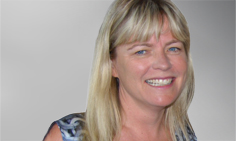EXPAT Australian writer, television presenter and public figure Clive James is dying. Last week he published a poignant poem about his waning life in The New Yorker, one of several he has written reflecting on his final illness.
When asked earlier this year about his recent poems he said they were “not about grief or sadness or fear” but “about luck, and I have had my fair share”. Through his poetry he is able to reframe the conversation about his death, not as a tragedy but as a gentle end to a fortunate life.
Reframing conversations about death is very much on the agenda in Australia, as the Senate Legal and Constitutional Affairs Committee prepares to table its report on the proposed Dying with Dignity bill, examining the rights of terminally ill people to seek assistance in ending their lives.
The AMA has made a submission to the inquiry and, earlier this month also released an updated policy statement on end-of-life care, emphasising good communication to “alleviate fear, confusion, and guilt over the patient’s condition, assist with decision-making, and reduce the potential for conflict over the patient’s care”.
The peak body for end-of-life medical care, Palliative Care Australia, has for some time been seeking to reframe the conversation about palliative care as “everyone’s business”. In a comment for MJA InSight this week, PCA president, Professor Patsy Yates, invites all interested parties to participate in a public consultation about the organisation’s proposed new set of standards.
Our lead news story this week seeks to reframe the conversation about another important aspect of medicine — prescribing. Two Perspective articles in the MJA, discussing the risks, benefits and practicalities of stopping prescription medications (deprescribing), were the impetus for the story.
Taking a novel slant on conventional medical wisdom, geriatrician Professor David Le Couteur, told MJA InSight: “I don’t see deprescribing any differently from prescribing — it has risks and benefits, it needs consent and monitoring, it’s done to improve patient outcomes, how you do it will depend on the drug and the patient …”
Two articles in this issue reflect a reframing of the conversation about the rural health workforce. A news story reports on the possibility that, while the number of GPs working in rural and remote locations is increasing, the trend towards reduced working hours may still leave these areas under-serviced. Counting hours is one way of measuring the sufficiency of a workforce, but it’s a complex equation. As Queensland rural generalist Dr Louis Peachey, told MJA InSight: “Working part-time is all about sustainability.”
Sustainability is also on the mind of our rural correspondent, Dr Aniello Iannuzzi this week, who writes about the imperfect rural workforce solution of employing “fly-in fly-out” doctors.
Our conversations about pregnancy outcomes often focus on the babies, but an Australian study that is the subject of another news story looks at the correlates of poor maternal outcomes. While the results are not surprising, according the obstetricians we approached, they do suggest avenues for prevention, enhanced surveillance and early intervention.
The ability to reframe conversations is vital to communication in science and medicine, as we try to ensure that new knowledge is able to benefit those who need it. As Jane McCredie outlines in her blog this week, science communication is a science in itself!
However we seek to reframe important conversations in health, there is much to learn from good communicators in all spheres.
To borrow again from Clive James, as described in his autobiographical book May Week was in June: “All I can do is turn a phrase until it catches the light.”
Dr Ruth Armstrong is the medical editor of MJA InSight. Find her on Twitter: @DrRuthInSight

 more_vert
more_vert
I totally agree that a public discussion about dying is urgently needed.
I have just visited my 90 year old mother, who is remarkably well and cognizant.
We discussed her Advanced Care Directive, so she could make her own choices about medical interventions that she may not want. It is a ‘living document’ which she can alter at any time, according to her wishes.
It is a discussion every family must have; the official forms can be located on http://www.respectingpatientchoices.org.au and are different for every state and territory.
My wife and I are now preparing our own Directives, so we do not have any other person making decisions on our behalf, when we are unable to make our own decisions.
As we spend our whole life deciding what is best for us, our choices in dying are a logical extension of this.